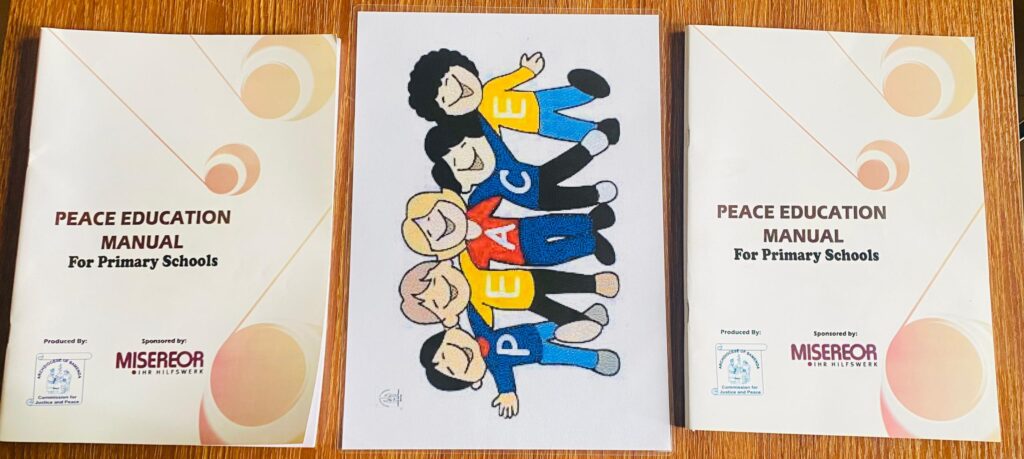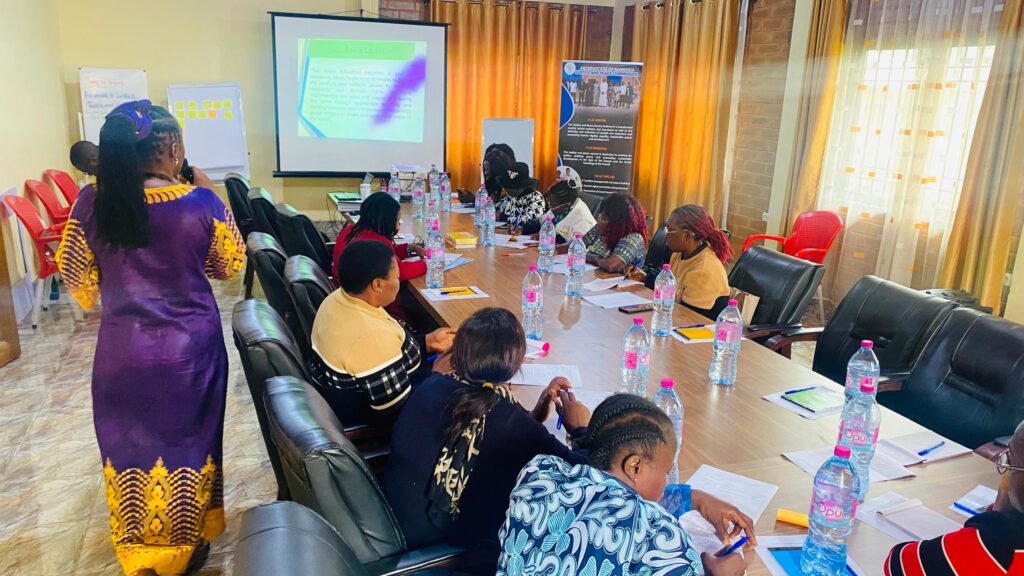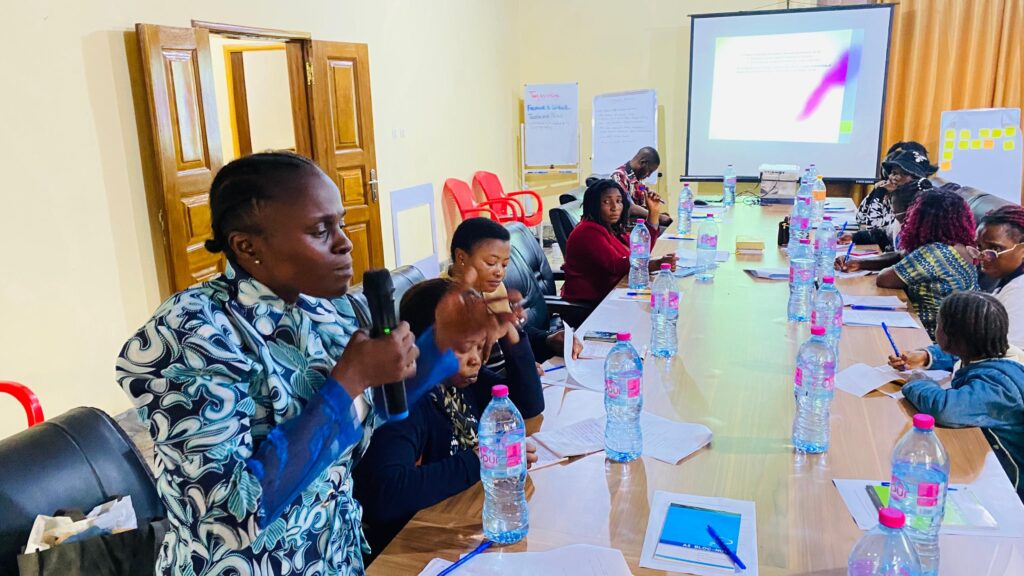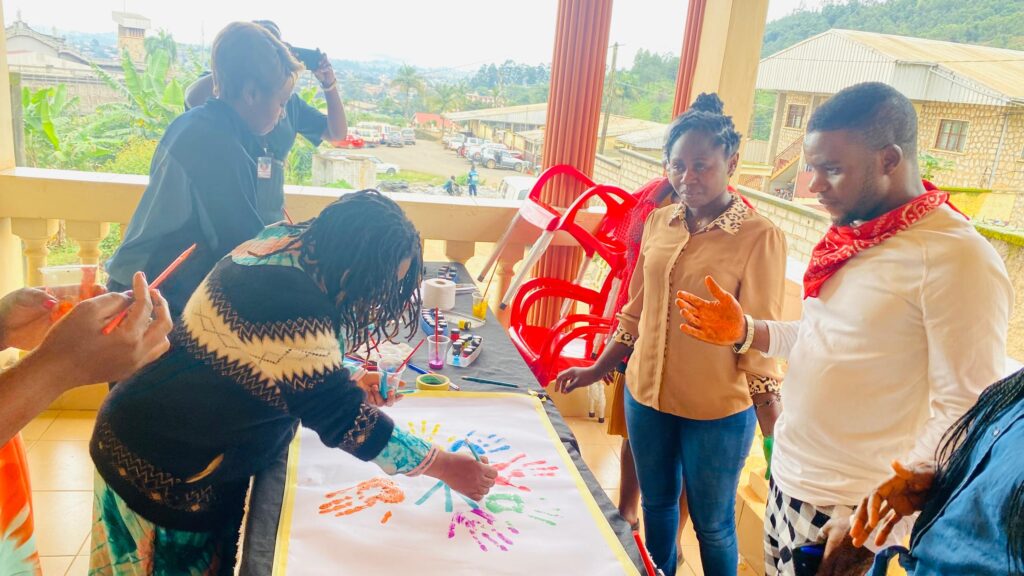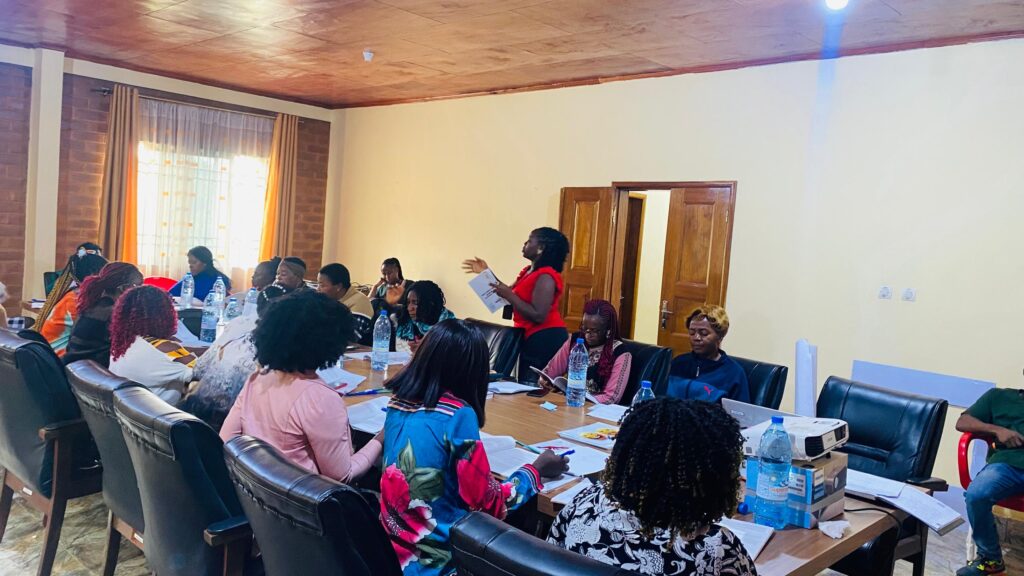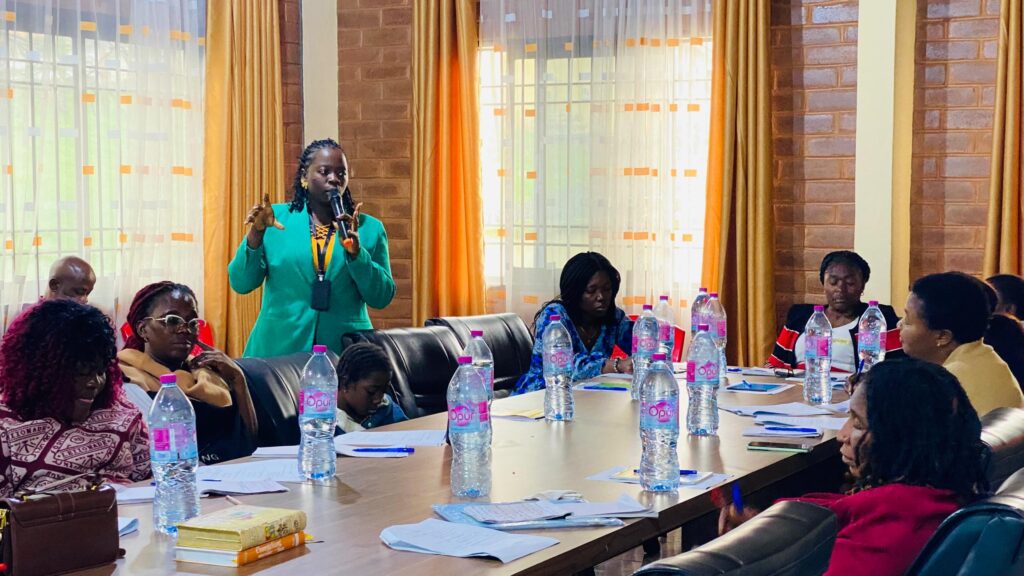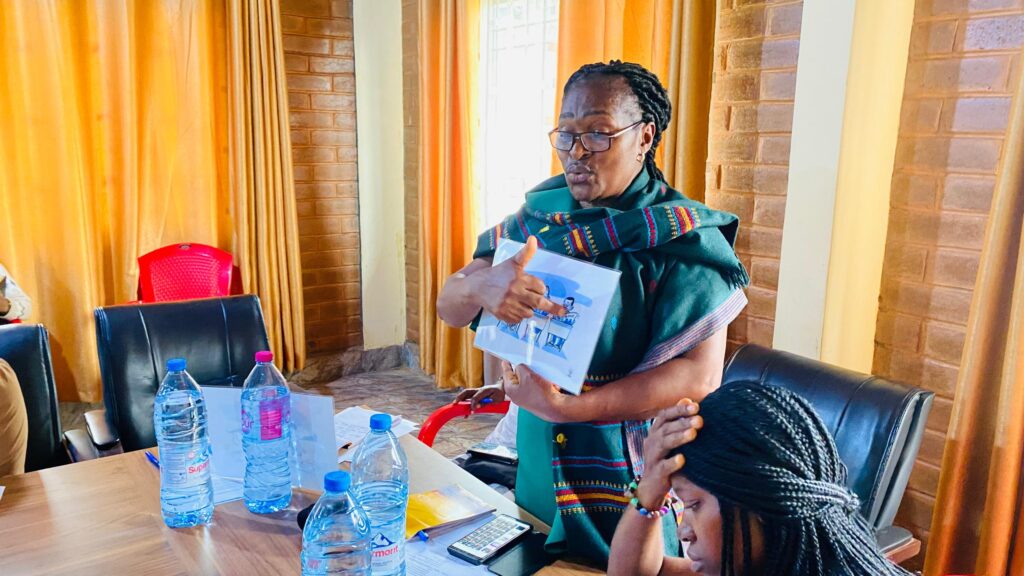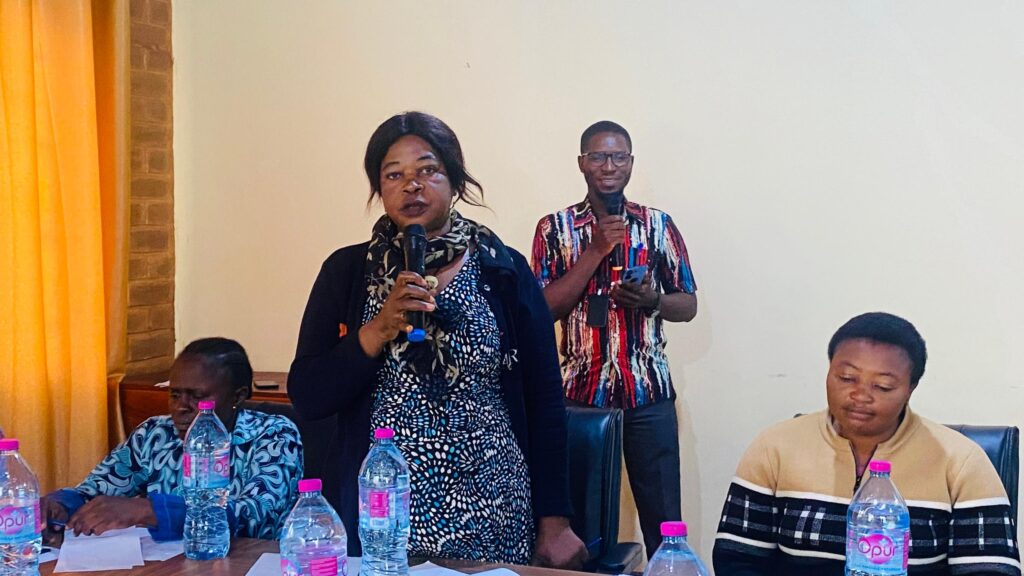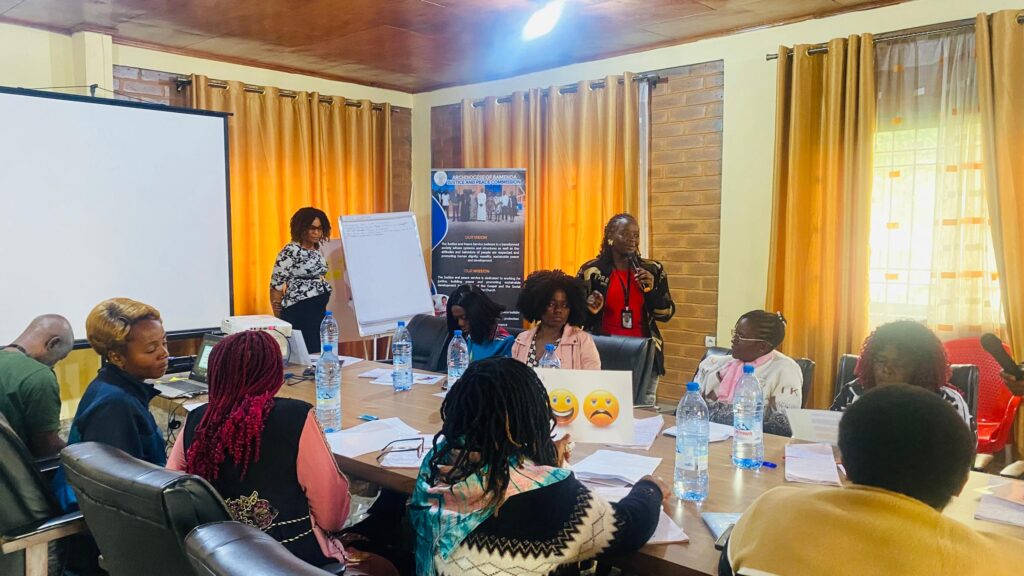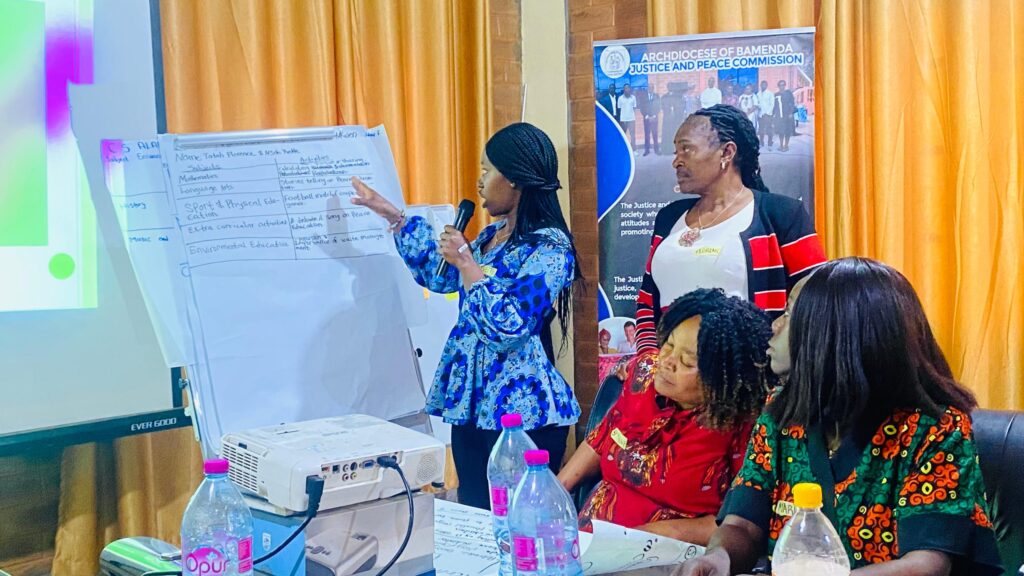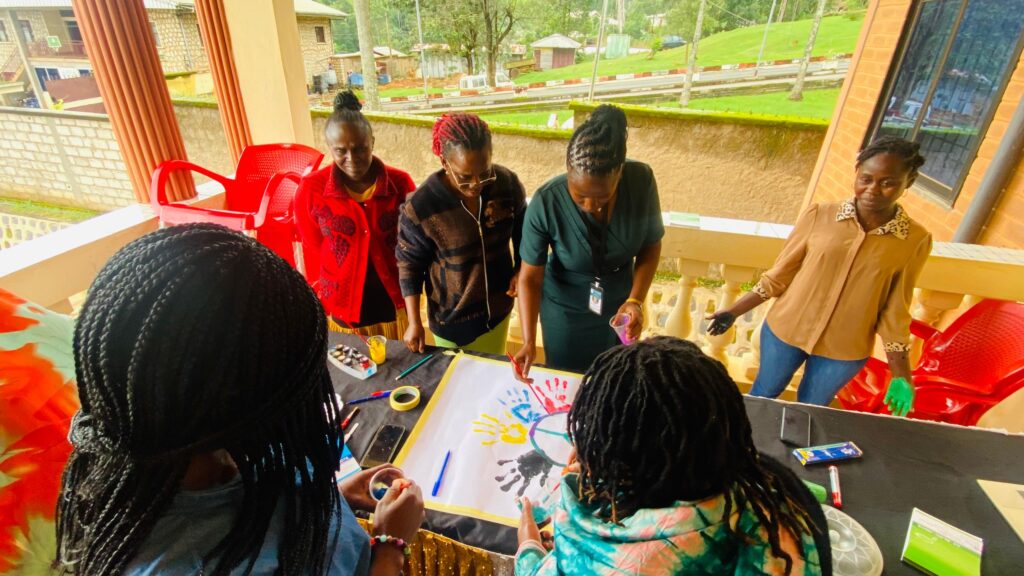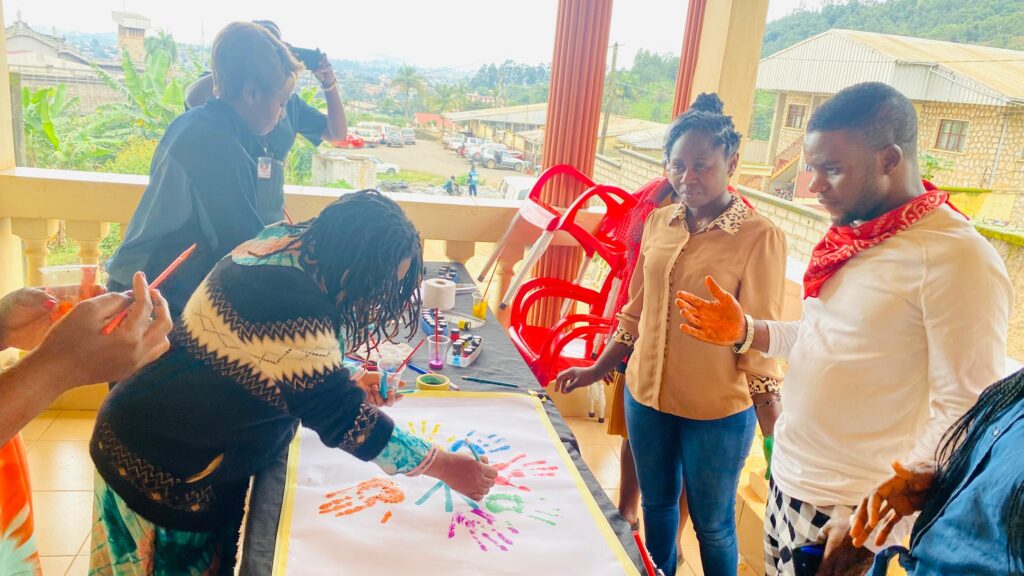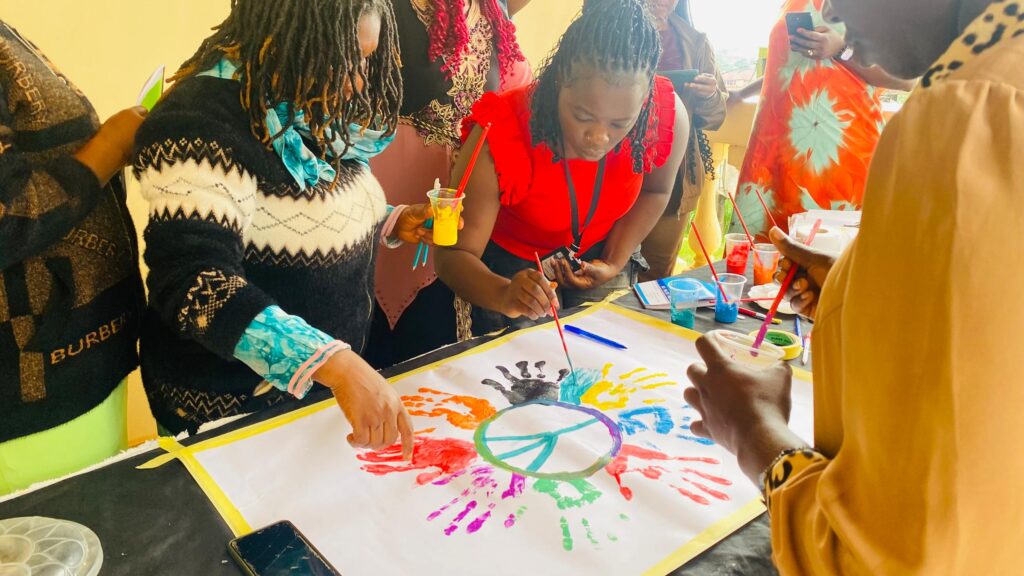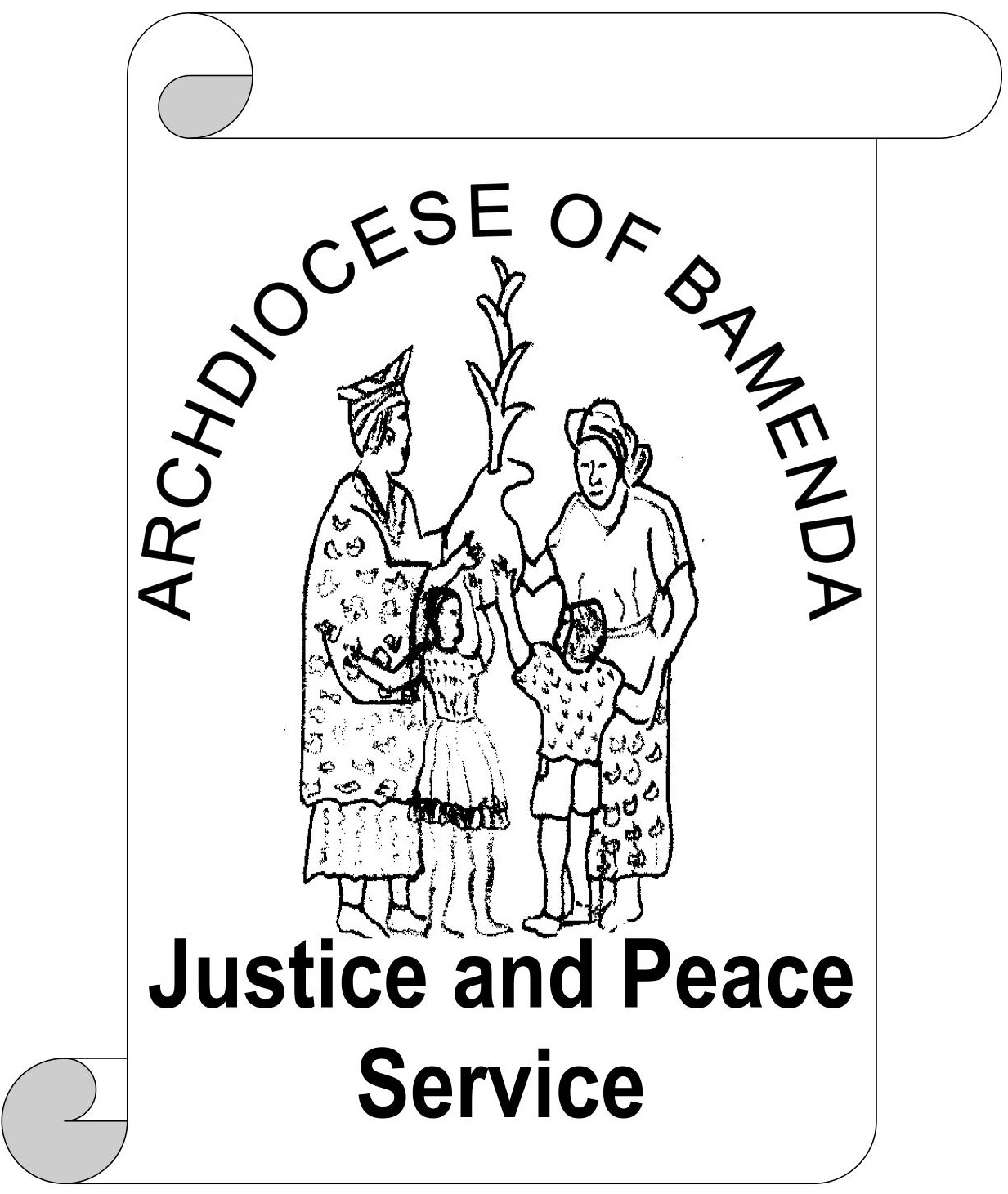“To promote peace education in primary schools in the Archdiocese of Bamenda by training 100 teachers from 10 schools and developing contextualized peace education materials that will aid in promoting a culture of peace in the school milieu”.
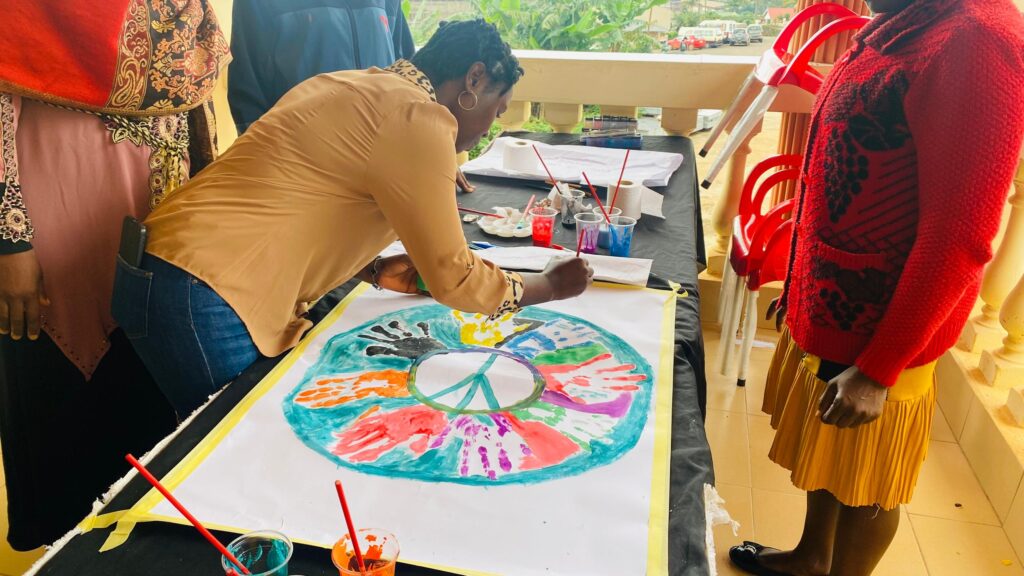
The current socio-political climate of the North West Region continues to leave devastating effects in the lives of children and youths. Thus, formal Education offered in this region should be critical to promoting peace, tolerance, and social cohesion. Peace education can help children and youths to develop critical thinking and problem-solving skills to navigate complex social and political issues, understand and appreciate different perspectives and cultures, develop empathy and compassion for others affected by the crisis, and build resilience and coping mechanisms to deal with trauma and stress.
It is for this reason that the Justice and Peace Service organized another 2-day capacity building workshop on Peace Education for teachers of primary schools of the Archdiocese of Bamenda. It took place from July 31st to August 1st 2025, aimed at building the capacities of these teachers in integrating Peace Education in their school curriculum. It brought together 20 teachers from primary schools like Catholic School(CS) Ntahkekah, CS Ntatru, St Peters Bambui, St Joseph Big Mankon amongst others.
The training comprised of modules like Understanding Peace Education, Human Rights Education, Cultivating a Culture of Peace, Effective Communication, Conflicts and Its Impacts,Engaging Pupils in Arts for Peace and others, spread over the two days and handled by the Coordinator(Mme Raphaela Kianda), Peace and Development Officer(Ms. Mali Martha-Noel), Human Rights Officer (Mr. Ngong Magnus) while other team members had different interventions ensuring the success of the program.
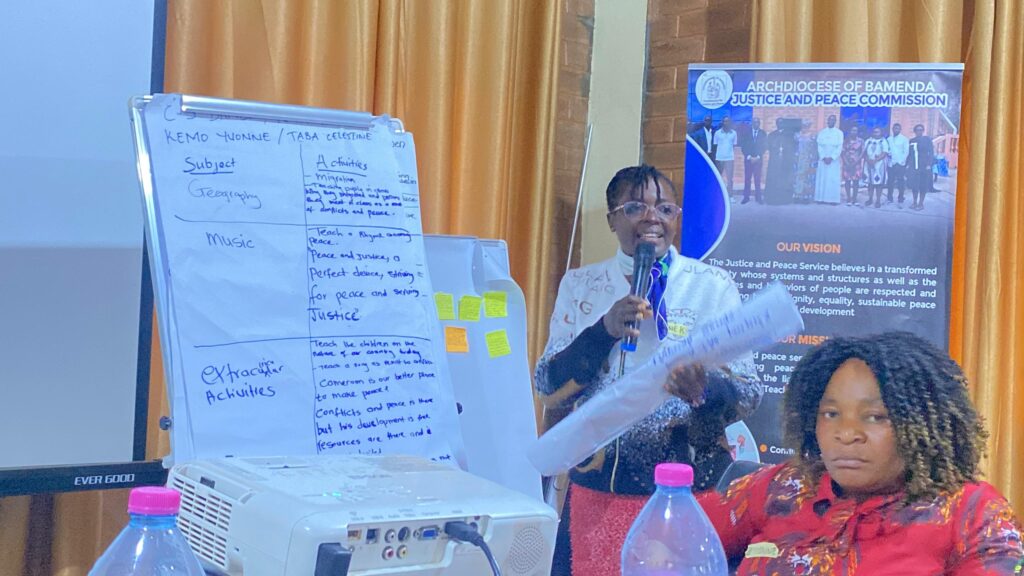
Highlighting the benefits and constraints of integrating peace education in the school curriculum, identifying values and skills to enhance and incorporate in children so as to achieve violence free schools, molding communication skills of teachers to reduce tensions in the school milieu, understanding the rights of children in and out of the classroom and how to help them respect each other’s rights, understanding how conflicts should be perceived and addressed to reduce their impacts on children, designing practical ways of integrating Peace Education in subjects taught in the classroom, as well as grasping different works of arts like forum theatre, communication cycle, painting and drawing for peace that pupils can be engaged in so as to build a culture of peace in them, were some key lessons the participants agreed to have grabbed from this training.
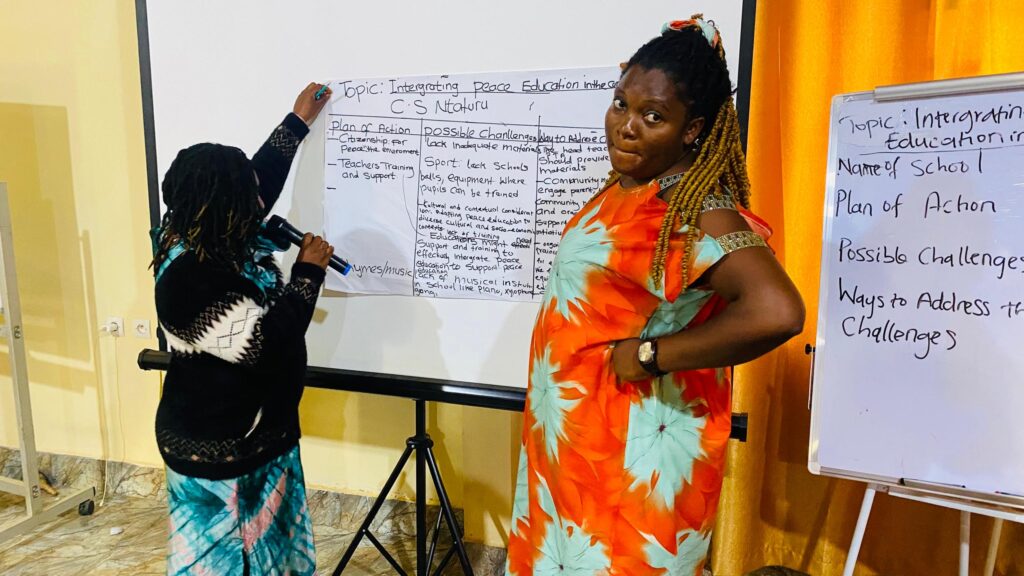
After distributing The training ended with participants designing and presenting action plans on how they intend to pass on knowledge gained, integrate peace education in their curriculum and build violence free schools. These action plans will be used to during school monitoring visits to monitor and evaluate the trained teachers interventions as far as integrating Peace Education is concerned.
